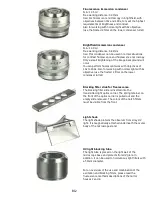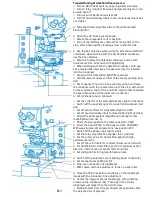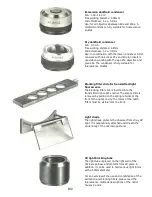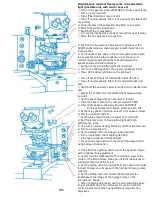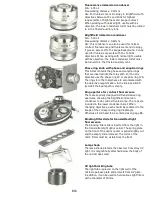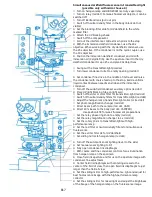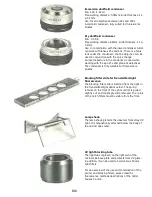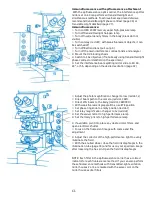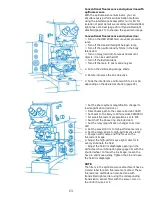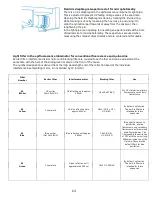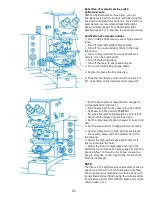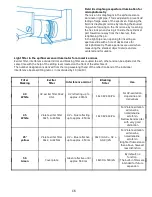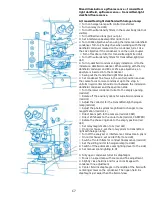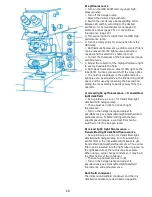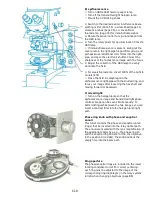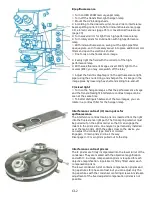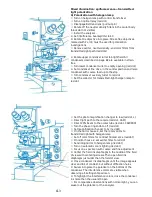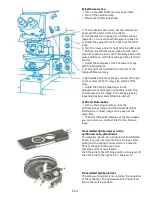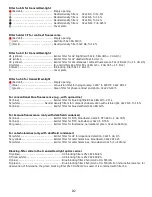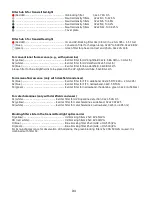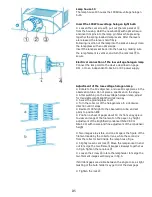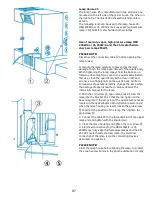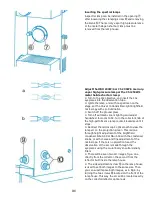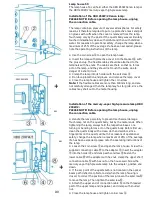
C8
B) epifluorescence
⚪ Turn on the HBO 200W mercury-vapor high-
pressure lamp
⚪ Turn off the halogen lamp
⚪ Attach the UV-blocking eyeshade
⚫ Switch the interference beam-splitting mirror
between 40 and 56, according to the desired
excitation, for immunofluorescence (page C1),
aromatic amines (page C5), or conventional
fluorescence (page C3)
⚫ Turn swivel mirror for light from the HBO high-
performance lamp
⚫ Turn the rotary prism for illumination from the
HBO lamp
⚪ With immunofluorescence, additional color filters
can be moved into the light source path when
needed, and the electronic shutter opened
⚪ Correct the sharpness of the fluorescence image
with fine focus
⚫ Adjust the collector of the high-performance light
to evenly illuminate the field
⚫ With weak fluorescence, divert 100% light to the
tube (EYE). You may also switch off the relay optics
⚪ The field iris diaphragm in the epifluorescence
light pipe can be adjusted via the knurled ring (CCW:
open), and focused by loosening the hex rod and
sliding the iris assembly towards or away from the
operator.
C) mixed light: epifluore transmitted-
light darkfield
⚪ Set up initially, as in (A), for transmitted-light
darkfield with halogen lamp
⚪ Then adjust as in (B), for incident-light
fluorescence.
⚪ Turn on the halogen lamp and adjust to
simultaneously see transmitted-light darkfield and
epifluorescence. To better distinguish the two
superimposed images, a contrast filter can be
switched on for the halogen lamp.
D) mixed light: light fluore
transmitted-light darkfield fluorescence
⚪ Set up initially, as in (A), for transmitted-light
darkfield with halogen lamp. Turn to a matching
exciter filter in the transmitted-light beam to get
transmitted-light darkfield fluorescence. The exciter
filter can be inserted into the light tube or placed on
the light aperture of the microscope base plate.
When using a quick-change condenser, it may be in
the filter holder of the condenser.
⚪ Then set up fluorescence as in (B)
⚪ Turn on the halogen lamp and adjust to
simultaneously see transmitted-light darkfield
fluorescence and epifluorescence.
Dark field condenser
The immersion-darkfield condenser and the dry
darkfield condenser are described on page B4.
Summary of Contents for Univar
Page 1: ...Reichert Univar Manual...
Page 2: ......
Page 48: ...D6 blank no content...
Page 58: ...E2 blank no content...

